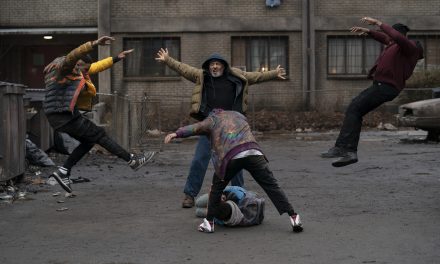[UPDATE: Paramount has reportedly refuted the rumor that it’s cancelled future Star Trek films. Still, the question regarding the franchise’s future success remains… Our original article follows.] Franchises can be weird things when it comes to movies. The best laid plans know every step they will take in their franchise, but they never make it past movie 1. Other franchises make zero plans for their future yet turn out the films left and right. So what’s the story with Star Trek?
A great example of the first would either be the Universal Monster movie franchise that struggled to get 2 movies out, or the recently cancelled Dark Crystal: Age of Resistance on Netflix. For the best example of the latter we look no further than the Fast and the Furious franchise. It drifted (pun intended) towards failure and cancellation when movie 5 drops and ignites an unplanned, but unrelenting series of hits. So does recent Star Trek news come from poor planning or Streaming success?
Poor Planning or Streaming Success – Movies Jump the Neutral Zone

While it may not officially go beyond the boundaries of rumor for now, too many thing point to this conclusion not to be true. Recently, rumor leaked Paramount axed all future Star Trek movies. What is so credible about this rumor? Where are the movies? Given the announcement, it appears Star Trek movies crossed sides to the Romulan side of the neutral zone.
The official Star Trek 4 with Chris Pine and Co has been in development for years. Star Trek Beyond released in 2016. Four years later production or even a script have yet to start/surface. Both fans and crew continue to wonder what will happen. Rumor suggested Chris Hemsworth might return to play Jim’s father, but Hemsworth since moved on to other projects. On top of that, Quentin Tarantino supposedly developed an R rated script for a movie based on an old original Star Trek episode. One day Tarantino prepares to show a script to execs. The next day neither side shows any signs of it ever happening. After 4 years, why does Paramount continue to sit on its hands?
Poor Planning or Streaming Success – Lack of Planning

Take a look back at the past Star Trek movies. While some nuggets shine here and there, by far the best run of movies take place from Star Trek 2-4. The story flowed in one cohesive direction. Each film picked up where the last left off. Look at the breakdown as follows:
- The Wrath of Kahn – Spock Dies
- Star Trek 3 – Get Spock’s body
- Star Trek 4 – Go home
Every single Star Trek film after that stood completely alone from the other movies. Creators captured lightning in a bottle with Chris Pine and Co. Rarely does such a popular original cast get completely replaced and the new cast so widely accepted, but look at this. Star Trek 2009, Into Darkness 2013, and Beyond 2016. In this day and age there should not be so much time between movies.
Then again perhaps the biggest movie failure starts with the initials JJ Abrams. Abrams did a solid job relaunching both the Star Trek universe and the Star Wars universe, but after that things go south. For Star Trek the best idea JJ could muster was a poor remake of Wrath of Kahn (then lie about it). With Star Wars he bowed out, but then when they called him back for movie 3, he spent more time on ‘fan service’ and resetting the story than keeping the story moving and doing something new.
Justin Lin made a nice recovery with Star Trek Beyond, but it seems fans and movie goers alike showed little interest. To me Beyond outdoes its two predecessors and set up some nice things for the future, but to no avail. Like Star Wars, no one oversaw the franchise to drive it in a unified direction.
Poor Planning or Streaming Success – TV Killed the Movie Star

As crazy as it sounds it’s may be the truth. Why now? Why all of a sudden suspend all movie production? Perhaps Paramount realizes they need to return to their roots. Star Trek started off after all as a television series. CBS All Access (soon to be known as Paramount+) may show proof Trek belongs on the little screen not the big screen.
One simple fact defines story telling today. If you want big screen revenue, you need to bring the booms. Movies need lots of action, special effects and hopefully a story somewhere. Television/streaming allows story tellers to slow things down and develop both world and characters in far more detail. Trek always thrived on its story telling and character usage. In slowing down Rodenberry told stories mimicking the real world and the problems in it. It can be very hard to do this on the big screen because time is so finite.
Star Trek Discovery and Picard allowed Trek to return to its roots. While the looks are still spiffed up from old shows, and even the movies, the stories turned back to roots Rodenberry started. Also, Picard ran on a budget of $8-9 million. Beyond hits screens on a budget of $185 million. It is far easier for Paramount to recoup $10 million on a venture than $200 million.
Poor Planning or Streaming Success – Where Does the future Lead?
As Mr Spock would say there are always possibilities, and Kirk never did believe in the no-win scenario. Are movies dead? I hope not, but given the success of the movies vs the shows and budgets needed it looks like TV killed the movie star (Call the Buggles. They have a new hit song). Hopefully if they ever do try movies again, they will find someone to lead the vision forward. Star Trek began on television. Perhaps its true home belongs on the small screen.





